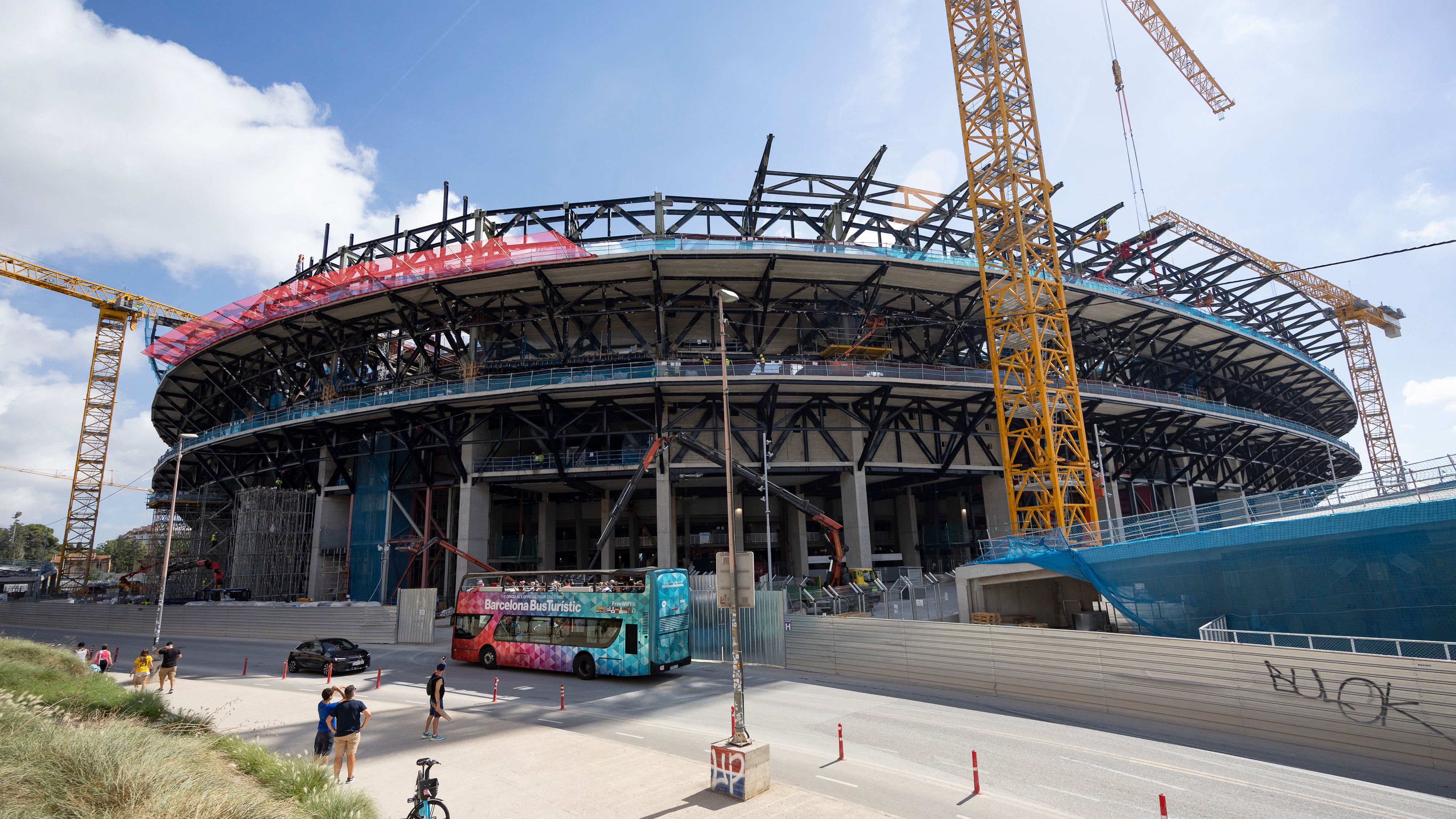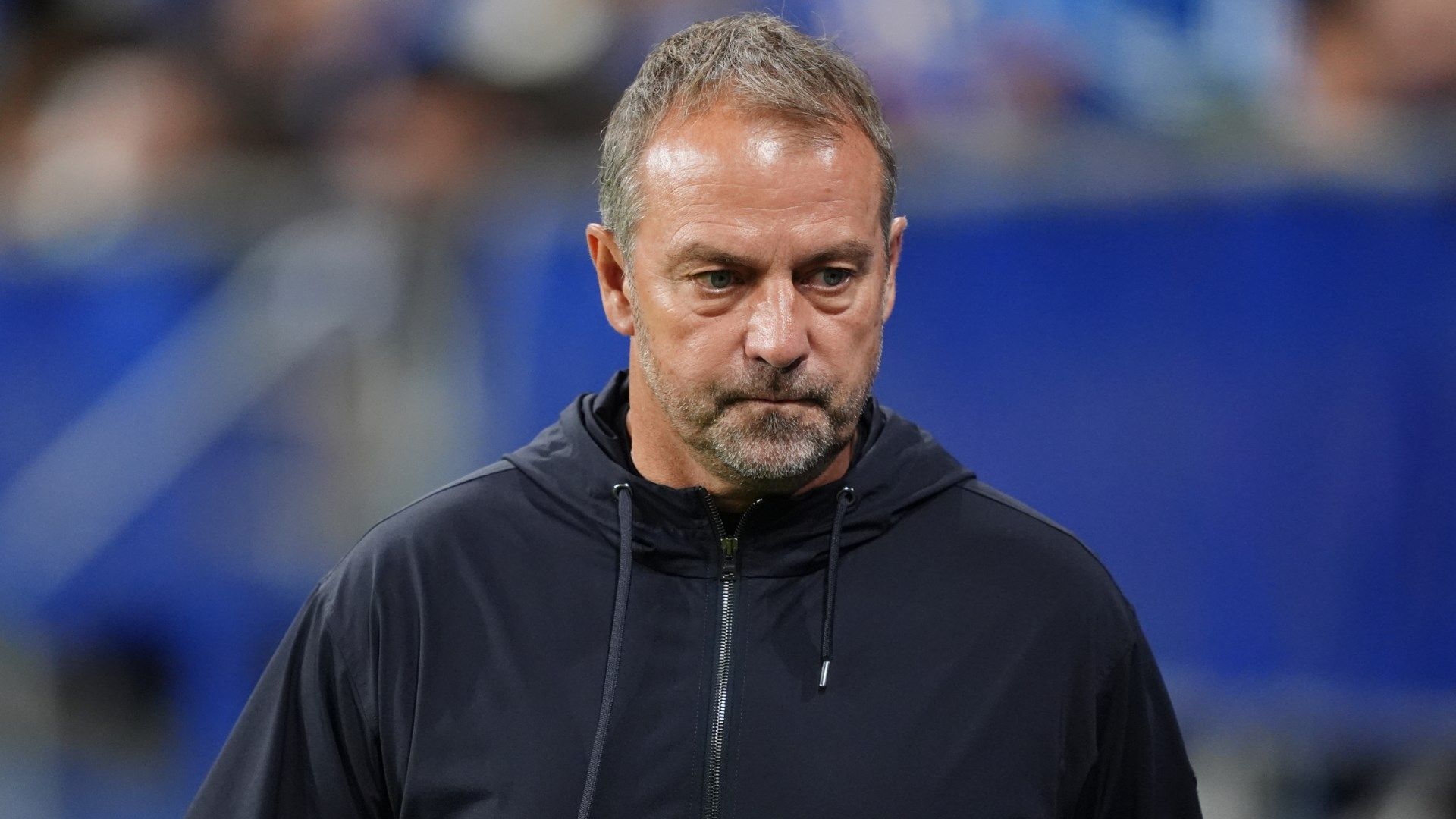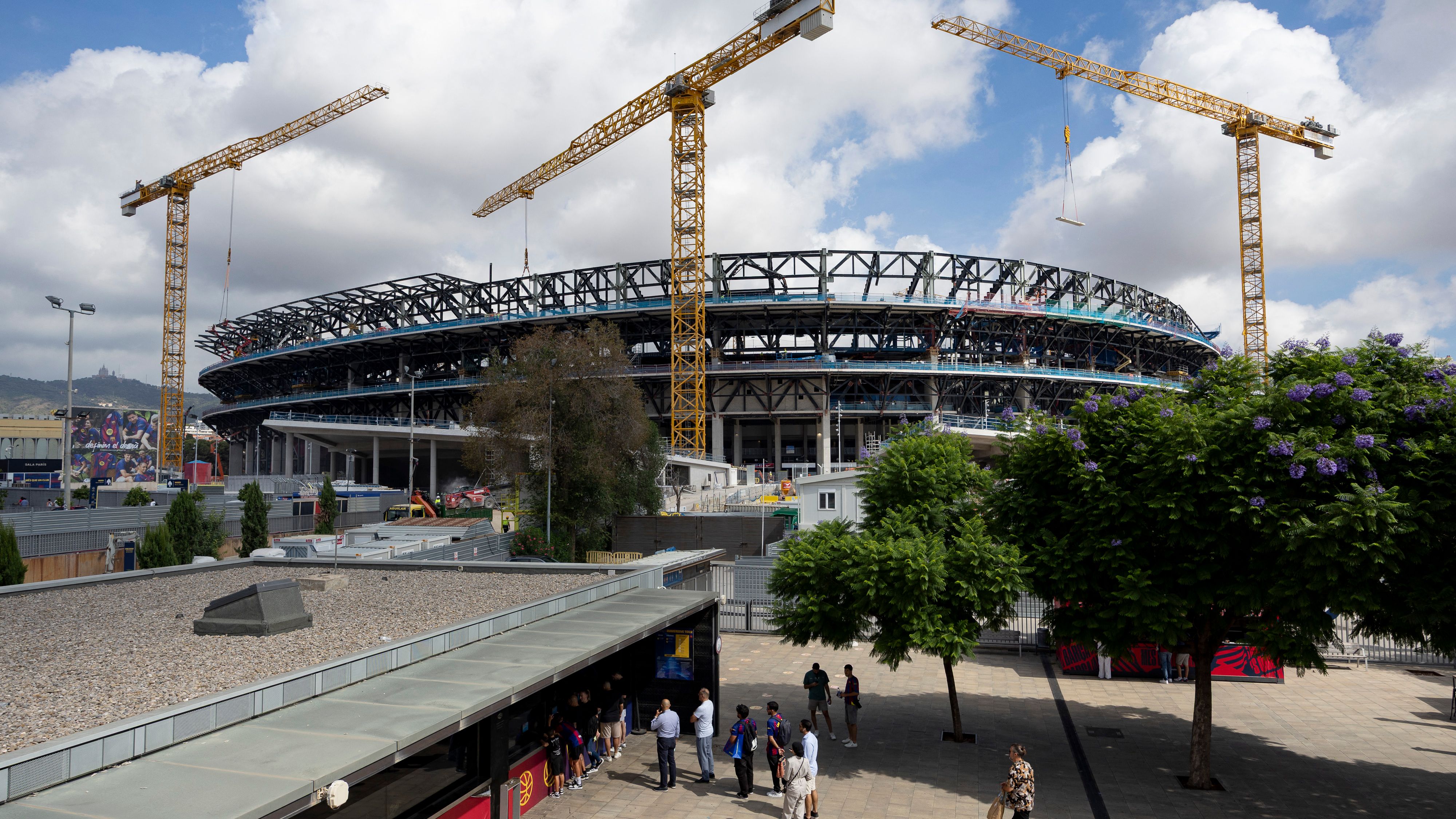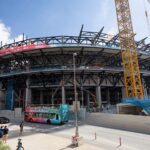


Why Barcelona’s Camp Nou Return Hits Another Roadblock
In the world of football, setbacks often test a team’s resolve, and Barcelona‘s Camp Nou saga is no exception. The club has officially declared that their Champions League group stage encounter with Olympiacos, set for October 21, will occur at the Montjuic venue instead, effectively postponing the much-anticipated debut of their refurbished stadium. This development stems from ongoing efforts to secure the essential regulatory approvals for their iconic home ground.
Barcelona’s Official Update on Stadium Shift
This latest pronouncement from Barcelona quashes earlier rumors of a timely comeback to Camp Nou this month. Although UEFA initially designated the upgraded stadium for the Olympiacos game, sparking hopes of a swift return, the team has now made it clear that the match will stay at their interim location in Montjuic. This choice arises from recent adjustments provided by the Barcelona City Council, which the club is diligently addressing. As a result, ticketing arrangements are affected, granting priority access for 48 hours to fans with season passes from the previous two years at Montjuic for this European contest.
Effects on Fan Access and Ticketing
With this venue decision, the process for acquiring tickets has been streamlined to prioritize loyal supporters, ensuring that those accustomed to Montjuic get first dibs. This approach not only maintains fairness but also reflects the club’s strategy to manage expectations amid the uncertainty, much like how a backup plan keeps operations smooth during unexpected delays.
Underlying Factors Driving the Postponement
Beyond the bureaucratic obstacles, practical and economic aspects are playing a significant role in this delay. An early October reopening at Camp Nou would have meant operating at a limited capacity of only 27,000 fans, which pales in comparison to Montjuic’s ability to host over 50,000 attendees. Consequently, Barcelona is evaluating the advantages of holding off until additional areas of Camp Nou are fully ready, potentially boosting attendance numbers and boosting revenue from game days considerably.
Balancing Capacity and Revenue Potential
For instance, waiting a bit longer could transform a modest gathering into a bustling event, similar to how expanding a venue’s sections allows for a more vibrant atmosphere and financial gains, making the temporary setup at Montjuic a smarter interim solution.
Navigating UEFA Rules and Looking Ahead
Complications arise from UEFA’s strict guidelines, which demand that a domestic match occur in a newly prepared stadium prior to any European games. Additionally, clubs generally must use one consistent location for all home matches in the group stage, so Barcelona might require special approval to switch venues midway. Now that the October timeline is no longer feasible, insiders point to their La Liga fixture against Athletic Club on November 23 as the potential milestone for the stadium’s official launch, where capacities might range from 45,000 to 62,000 spectators.
Potential Timeline for the Grand Debut
This adjusted schedule underscores the need for careful planning, akin to coordinating a major event where every detail must align perfectly to avoid further hitches.
Team Preparations Amid Stadium Uncertainties
Until all necessary permissions are in place and a definitive schedule is set, Hansi Flick’s squad will keep utilizing the Montjuic stadium for every home game. Despite these external distractions, the players’ priority remains their tough Champions League matchup against Paris Saint-Germain, as they push forward with ticket sales for the Olympiacos game at the current site.
Shifting Focus to On-Field Battles
In the midst of these logistical challenges, maintaining team morale and performance is key, allowing Barcelona to channel their energy into competitive triumphs while the stadium matters sort themselves out.
Current Challenges at Camp Nou
As the La Liga champions, Barcelona continues to grapple with ongoing issues at their iconic Camp Nou stadium, which has become a focal point for fans and experts alike. These challenges range from infrastructure upgrades to how they affect the team’s overall performance in high-stakes matches. With the stadium’s renovations dragging on, it’s clear that Barcelona’s home ground isn’t just a venue-it’s a symbol of the club’s legacy that needs careful management to keep up with modern demands[başvurmak:[başvurmak:https://www.fcbarcelona.com/en/football/first-team/news].
One of the biggest hurdles has been the delays in completing the stadium’s redevelopment, which aims to boost capacity and enhance fan experiences. This has forced the team to play some matches away from home or in a partially renovated venue, potentially disrupting player routines and team morale. For instance, recent reports highlight how such logistical issues can lead to fatigue, especially when preparing for intense fixtures like those in the Champions League.
Impact on Team Dynamics
The Camp Nou challenges aren’t just physical; they ripple into team dynamics and strategy. Coaches and players have had to adapt to inconsistent playing environments, which might explain some of the ups and downs in recent performances. Take the team’s hard-fought battle in their last match, where the coach praised their resilience despite the defeat[başvurmak:[başvurmak:https://www.fcbarcelona.com/en/football/first-team/news]. This adaptability is crucial as Barcelona eyes their upcoming Champions League fixture, where home advantage could make or break their campaign.
In essence, these stadium woes could affect everything from training sessions to match-day energy. Players might face distractions from construction noise or altered pitch conditions, making it harder to maintain the high standards expected from La Liga champions.
Preparing for the Upcoming Champions League Fixture
Shifting gears to the pitch, Barcelona’s preparation for their next Champions League game is ramping up, with the team focusing on strategic adjustments to overcome any Camp Nou-related setbacks. While the exact opponent for this fixture hasn’t been detailed in recent schedules, the club’s overall calendar shows a packed lineup that includes key matches like their clash with Celta de Vigo[başvurmak:[başvurmak:https://www.fcbarcelona.com/en/football/first-team/schedule]. This preparation phase is vital, as Champions League games demand peak physical and mental readiness.
Barcelona’s coaching staff is likely emphasizing quick tactical shifts, drawing from their experience in recent competitive outings. For example, the team’s ability to fight back in the second half of matches, as noted in official updates, could be a game-changer in Europe[başvurmak:[başvurmak:https://www.fcbarcelona.com/en/football/first-team/news]. Fans are buzzing about how the squad will balance domestic and continental commitments, especially with travel and recovery playing a role.
Benefits of Overcoming These Challenges
Looking at the brighter side, addressing Camp Nou’s issues and nailing the Champions League fixture could bring substantial benefits for Barcelona. First off, a fully renovated stadium would offer better facilities, like improved seating and tech upgrades, enhancing the fan experience and potentially increasing revenue through more lucrative sponsorships. For the players, overcoming these obstacles could foster a stronger team bond, turning challenges into motivation for stellar performances on the European stage.
Additionally, successfully navigating this period might solidify Barcelona’s reputation as resilient La Liga champions, attracting top talent and boosting global fan engagement. Think about how past successes in tough times have led to iconic comebacks-it’s all about building that winning mentality.
Practical Tips for Fans and Supporters
If you’re a Barcelona fan dealing with the uncertainty around Camp Nou, here are some practical tips to stay engaged:
- Stay Updated on Schedules: Keep an eye on the official fixture list to avoid missing key games, including the Champions League match. This helps in planning travel or watching parties[başvurmak:[başvurmak:https://www.fcbarcelona.com/en/football/first-team/schedule].
- Explore Alternative Viewing Options: With potential home game disruptions, consider attending away matches or using official streams to catch the action live.
- Join Fan Communities: Engage with online forums or local groups to share insights and support the team-it’s a great way to turn frustrations into collective excitement.
- Focus on Player Prep: Follow training updates to appreciate how the team is adapting, which can make watching games even more rewarding.
These tips not only help you as a supporter but also build a sense of community around the club’s ongoing story.
Case Studies from Barcelona’s History
Drawing from Barcelona’s rich history, we can look at past case studies where similar challenges were overcome. For instance, during previous stadium upgrades, the team managed to maintain their competitive edge by focusing on away form and tactical flexibility, much like their planned Asia tour for the 2025/26 preseason[başvurmak:[başvurmak:https://www.fcbarcelona.com/en/football/first-team/news/4286933/fc-barcelona-to-go-to-asia-for-the-first-time-in-six-years-for-202526-preseason]. That tour, announced recently, shows how international exposure can help build resilience and prepare for big fixtures.
Another example is how Barcelona bounced back from early-season losses in previous years, using those experiences to fuel deep Champions League runs. These case studies illustrate that with strategic planning, the current Camp Nou challenges could actually propel the team forward.
First-Hand Experiences from the Club
From the club’s own narratives, players and coaches have shared insights into handling such pressures. In recent statements, the coach highlighted the team’s work ethic post-defeat, emphasizing how battling through adversity builds character[başvurmak:[başvurmak:https://www.fcbarcelona.com/en/football/first-team/news]. This first-hand perspective reminds us that for Barcelona, every challenge is an opportunity to showcase their famed “mes que un club” spirit, blending on-field prowess with off-field resilience as they gear up for the Champions League.









